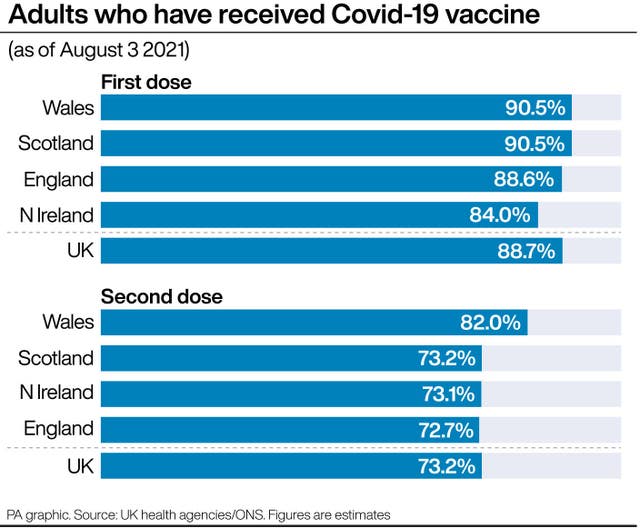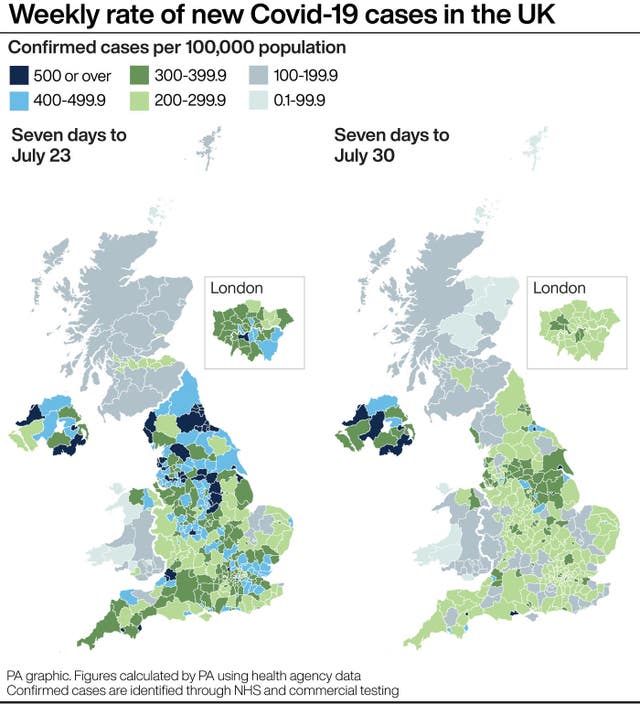16-year-olds will not need parental consent for Covid jab
Vaccination experts have advised that 16 and 17-year-olds should be offered the vaccine.

Sixteen-year-olds will be offered a first coronavirus jab in the coming weeks and will not need the consent of their parents to get a vaccine.
The Joint Committee on Vaccination and Immunisation (JCVI) has advised that the rollout should be extended to include 16 and 17-year-olds after reviewing the latest data.
Ministers have accepted the recommendation and the NHS is making preparations to start giving first doses to around 1.4 million children.
Vaccination experts are yet to set out the timeline for when youngsters should get their second dose, and will make further recommendations in the coming weeks.
Officials close to the programme said that under current UK guidance, if a child is able to understand the risks and benefits of any medical treatment then they can legally give consent without their parents’ say-so.
The child or young person’s consent is considered the most appropriate consent, even if a parent disagrees.
It is understood officials are not ruling out vaccinations for otherwise healthy 12 to 15-year-olds but want to look at more information first.
At present, children over the age of 12 are only eligible for a vaccine if they have certain medical conditions which put them at risk from Covid-19 or teenagers who live with people who are immunocompromised.

Some commentators have welcomed the move to jab older teenagers, saying that extending the vaccine programme will help reduce infection rates and transmission of the virus as well as curb disruption to schooling.
Children will receive the Pfizer/BioNTech vaccine, which has been approved for use in the UK for people aged 12 and over.
Experts have been constantly reviewing the data on vaccines for children.
Information which had led them to reconsider the position on vaccinating children aged 16 and 17 included the recent surge of infections, more data on the safety of the vaccines and the excellent progress of the adult vaccination programme.
The JCVI said that a number of factors have been considered but the most important element was the risk/benefit of vaccination to the individual.
Before coming to the conclusion, the JCVI said it considered potential adverse reactions following vaccination, the frequency and severity of severe Covid in children and young people, the occurrence of long Covid in children and the mental health and educational impacts of Covid, among other factors.

Experts from the JCVI as well as those from the Medicines and Healthcare products Regulatory Agency (MHRA) constantly review safety reports of the vaccine, from both the UK and abroad.
They said they considered reports of heart inflammation among some younger adults who had the jab, but officials said that this was considered to be “extremely rare”, affecting around one in 100,000 people vaccinated. And the effects are “mild” with a short recovery period.
Children who have had the vaccine in clinical trials and real world data suggest that some get short-lived side effects after inoculation, including fever, sore arm, headache and tiredness.
The NHS will set out plans on the rollout of the programme shortly.





